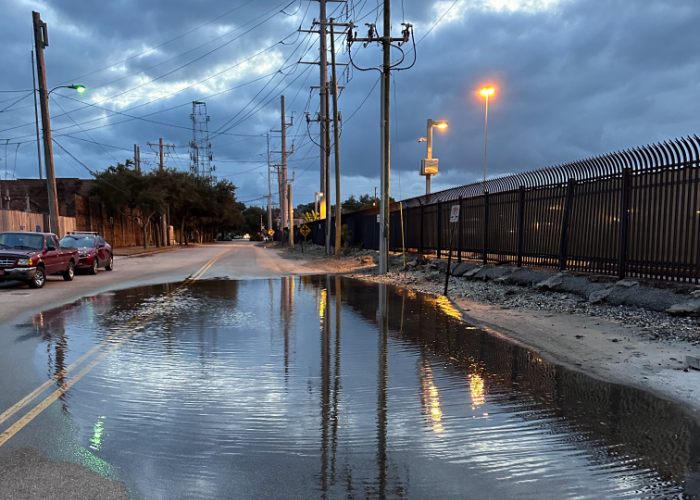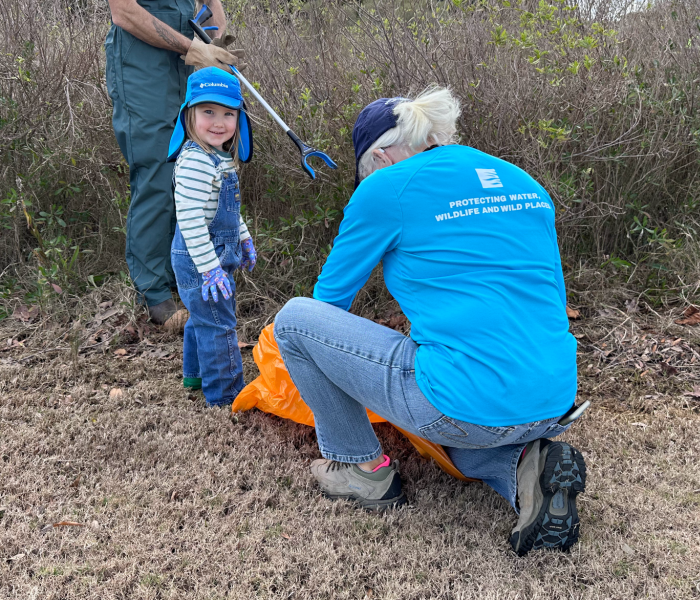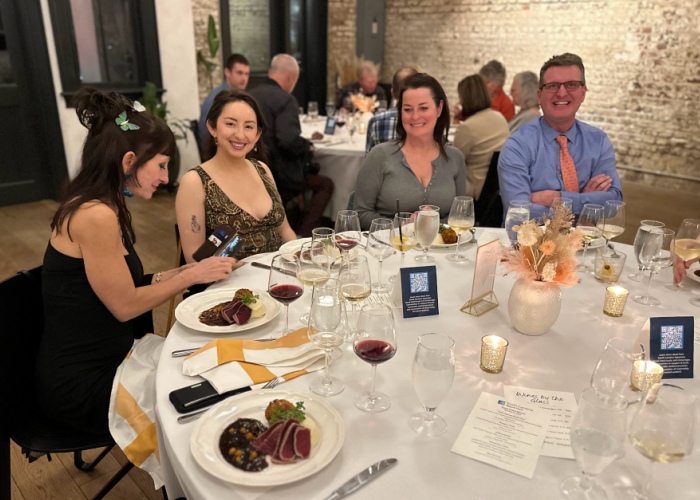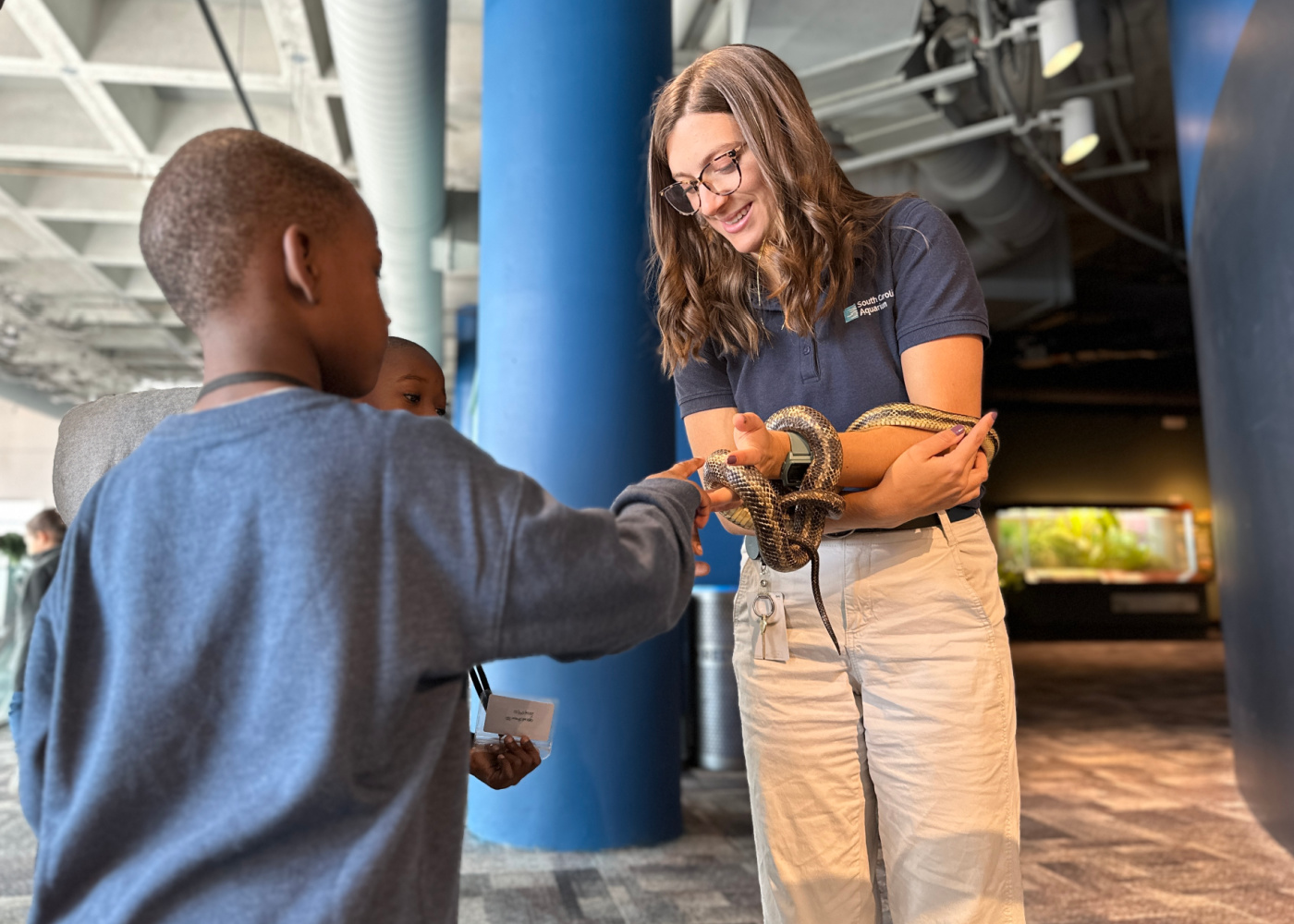It’s career day at school and you’re surrounded by classmates dressed as artists, basketball players, doctors, firefighters and more. You’re donning the classic white lab coat, clipboard and goggles for eye protection… You want to be a scientist when you grow up!
As a child, the world was full of countless opportunities for you to become whomever you wanted to be! At some point, many of us pivoted our childhood aspirations and chose a different career path for our future, yet that curiosity for the natural world never left us. What if we told you there was a way to reconnect with this childhood sense of wonder and contribute to science in your everyday life?
Rain, Rain, Go Away…
In the hustle and bustle of daily life, we might not realize how reliant we are on the tidal calendar to determine our daily commute until we’re in the midst of an extremely high tide event (known as a king tide). That’s why scientists have turned to crowd-sourced data coming directly from those who face the impacts of flooding regularly.
 Uploading simple photos like this bolsters our datasets.
Uploading simple photos like this bolsters our datasets.Researchers are inputting this crowd-sourced data into modeling technology to strengthen their predictions of future impacts of storm surge, sea level rise and extreme weather events. This technology is pivotal to creating data-informed decisions around resilience efforts, setting our community up to manage future impacts.
Foster a flooded area in your neighborhood and become a dedicated citizen scientist helping researchers bolster their datasets! Simply snap a photo of any flooding you encounter and upload it (along with the location, time and weather conditions) to the SeaRise Project, located in the South Carolina Aquarium Citizen Science app.
Clean Up, Clean Up, Everybody, Everywhere…
Litter is bad for the environment; we learned this at an early age, yet most of us probably still see litter every day. Whether it’s on a walk in our neighborhood, a visit to the park or a day at the beach, the unfortunate truth is that litter is a pervasive problem impacting the natural world. Scientists are working to mitigate the plastic problem, but they need your input!
 Everyone becomes a scientist during a litter sweep!
Everyone becomes a scientist during a litter sweep!The Litter Journal, another project in the South Carolina Aquarium Citizen Science app, consolidates the information you enter on the types of debris you pick up and dispose of from the environment. Scientists and changemakers alike use this data to inform community-specific solutions to litter and support legislative action around single-use plastic mitigation. Your scientific entries will add to this robust data set of more than 3 million items of debris removed from our environment since 2017, and you’ll connect with a community of like-minded citizen scientists from across the state and beyond!
Catch, Catch, Catch a Fish…
The Lowcountry is known for its variety of food-centric experiences. Delectable aromas of fresh spices waft from storefronts and mix with the briny scent of seafood from fishing vessels docked nearby. It’s not unusual to spot one of these quintessential vessels gliding across the horizon during a beach day. Daily catches brought in by some of these generational fishing families — our neighbors — is the freshest form of local seafood money can buy.
Sea-foodies like you offer up their insider tips of where to try the latest local catch in the Good Catch Seafood Survey, another project in our Citizen Science app. Record where you find locally sourced seafood (harvested from North Carolina to the east coast of Florida) during your next meal or visit to a seafood market! Choosing local and sustainable seafood options isn’t just savory; it supports our environment, local economy and fellow fishermen and shellfish farmers.
 Our friends are the best companions to try new seafood with!
Our friends are the best companions to try new seafood with!It’s a Beautiful Day in This Neighborhood
As adults, we acknowledge that career day was actually about recognizing the variety of positions that keep our community moving forward. Though we may not have all become scientists in the literal sense, each one of us is an integral part of our society.
By integrating moments of scientific exploration through citizen science projects, you can foster that child-like sense of wonder and pass that passion onto the next generation.
Published April 8, 2024


